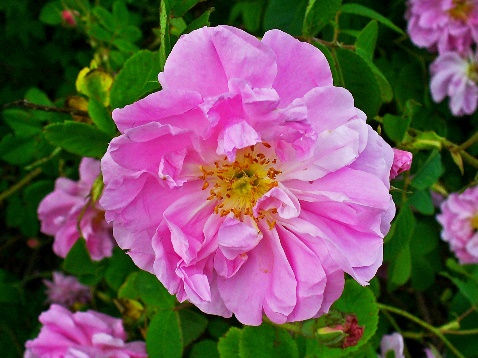Menopause and Vaginal Dryness
- sfwasik13
- Oct 8, 2024
- 2 min read
Vaginal dryness is a common issue that can affect women of all ages, with its prevalence
increasing significantly during perimenopause and menopause. This condition can deeply impact one's quality of life, but with the right understanding and treatment, women can regain comfort, confidence, and sexual satisfaction.
Vaginal Moisture and Its Importance
Natural lubrication is essential for vaginal health, helping to maintain moisture, cleanliness, and preventing infections like thrush. This lubrication is produced by glands at the cervix and moves slowly through the vagina, keeping it moist. During sexual arousal, Bartholin’s glands provide extra lubrication to facilitate intercourse. However, vaginal dryness can disrupt this natural process, especially during menopause, when estrogen levels decline.
Symptoms of Vaginal Dryness
• Painful sex: Thinning of the vaginal skin can lead to discomfort, making the tissue more susceptible to damage and infections.
• Vaginal pain in daily life: Dryness can cause discomfort even outside of sexual activity, making sitting, standing, exercising, and urinating painful.
• Changes in vaginal appearance: The lips of the vagina may thin, and discharge may become watery, discolored, and slightly smelly. Irritation and a burning sensation, which can mimic the symptoms of thrush, are also common. These physical symptoms can significantly impact how a woman feels about her body
• Emotional aspect- Women may feel different or disconnected from their bodies, and the discomfort caused by dryness can lower both self-confidence and sexual confidence. These changes can make intimacy challenging and reduce overall quality of life.
Herbal Treatments for Vaginal Dryness
When addressing vaginal dryness with herbal treatments, it's essential to use gentle remedies to avoid further irritation of the mucous membranes. Here are a few effective options:
• Rose petal infusion or aromatic water: Known for its mild astringent properties, rose petals gently soothe the vaginal tissue.
• Chamomile infusion or aromatic water: Chamomile is a gentle anti-inflammatory
• herb with mild antibacterial effects, which can calm irritation.
• Lavender infusion or aromatic water: Lavender’s anti-inflammatory properties make it an excellent choice for soothing the delicate tissues of the vaginal area.
• Coconut oil: This natural moisturizer provides hydration while also acting as an antibacterial barrier. It should be applied after a daily shower for optimal results.
These herbal remedies can provide relief, but for those seeking commercial products, INTO THE WYLDE is a well-known natural vaginal lubricant.
Other Treatment Options
In addition to herbal remedies, other effective treatments for vaginal dryness include:
• Local estrogen creams or gels
• DHEA supplements
• Commercial lubricants or moisturizers
It is important to avoid perfumed products, which can irritate the vaginal area. By exploring both natural and medical treatments, women can find the solution that works best for them and restore comfort and confidence.
If you're interested in exploring a natural approach to managing menopause, feel free to contact Catherine using the details below. And for more information go to www.menopauseinfo.org and www.imsociety.org
Contact details: for more information and advice:
Registered Osteopath and Medical Herbalist, Withacupuncture training and rehabilitation pilates instructor training
At George Morris Physiotherapy Clinics in Hindley andAshtonDirect line: 07828261152; email: catherine.w12@hotmail.com; Website: www.herbalosteopathiclife.com
Herbal Osteopathic Life








Commenti